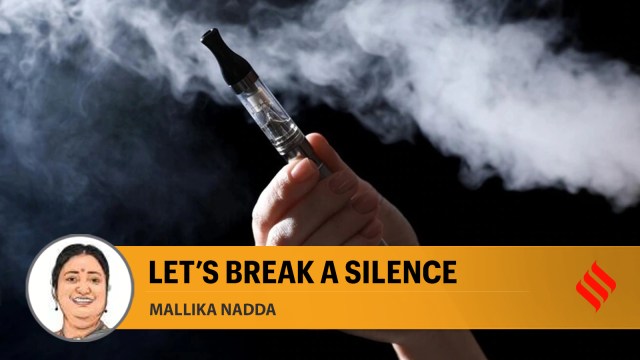
Let me begin with a question every parent will relate to: What is the biggest challenge of motherhood today? It’s not just balancing a demanding career with the responsibilities of home, nor raising high-performing children. It is the increasingly difficult task of raising good citizens — resilient, kind, and mentally sound human beings in a world that seems built to trip them up.
Adding to the complexity is adolescence, when children are in a precarious and vulnerable state. It is a period of significant transition, with challenges related to physical, emotional, social and behavioural development. This includes peer pressure, substance abuse, mental health issues and navigating complex social dynamics. It is an equally challenging phase for mothers, who have to balance work and family, manage emotional and behavioural changes and provide significant support and guidance during this critical period.
Amidst such tests, one of the worst nightmares for any mother is discovering her child lives with an intellectual disability. Many of these conditions are the result of genetic or prenatal complications — what we often call “an act of God.” But a more painful reality is when children, otherwise born healthy, slowly slip away into mental or cognitive decline due to modern vices.
It’s alarming to see today’s youth embracing habits that threaten their health along with curtailing their potential. It doesn’t begin only with syringes or narcotics. The road to addiction is also paved with gateway devices — vapes and e-cigarettes — marketed as safe, sleek, and even fashionable. These devices now come in child-friendly flavours, are endorsed by social influencers, and are cleverly disguised with sleek tech — ultrasonic vaporisation, candy-coloured pens and “odourless” nicotine pouches. The science isn’t accidental; it’s designed to recruit the next generation of consumers.
These vapes, despite being banned, are regularly discovered among school children in India, making them a big cause of concern. In Thailand, “zombie cigarettes” — drug-laced e-cigarettes containing synthetic cannabinoids like AB-PINACA — have become a serious threat. One tragic case involved a 12-year-old girl who suffered near-total lung failure after two years of vaping. Her addiction remained hidden until it was too late.
And this problem gets worse when vapes are a habit among grown-ups. A 2022 study published in Nature Communications revealed that exposure to nicotine during pregnancy impairs cortical brain development in the foetus, potentially leading to long-term cognitive disorders and learning disabilities.
India is also witnessing citizens’ efforts to recognise and address this concern. The Mothers Against Vaping movement is led by a group of ordinary mothers who have decided that passive concern is not enough. They are rallying, campaigning, and creating awareness, especially in schools, to prevent other children from falling into the same trap.
India has taken a commendable step by banning e-cigarettes and vapes, unlike countries in Europe and Asia who are now struggling with their widespread misuse. As global players push to open markets, much like in the tariff talks, there may be pressure to relax our stance. But we must stay firm. Yes, we must welcome innovation in healthcare, medical science, and education. But we must advocate against innovation in nicotine delivery devices. Let us be the country that chooses to protect its future, not mortgage it to addiction industries which use clever and deceptive marketing skills to make inroads into large markets like India that, according to most estimates, will become the largest consumer market by 2027.
As someone who works closely with children and families impacted by intellectual disabilities, I can tell you this: The joy of a mother watching her child grow up healthy, confident, and full of potential is unmatched. Whether it’s a child with special needs running their first race or a teenager resisting peer pressure, these are the triumphs that make all the sleepless nights worth it.
Now imagine the opposite: Watching a child waste away due to something as preventable as nicotine addiction induced by deceptive products, all because we as a society chose silence over action.
We are indeed at the crossroads. As mothers, educators, policymakers and citizens, let us fight this with tenacity and understanding that we have the responsibility to safeguard today’s and future generations from peril and significant damage.
The writer is President, Special Olympics Bharat and Chairperson, Special Olympics Asia Pacific Advisory council (APAC)